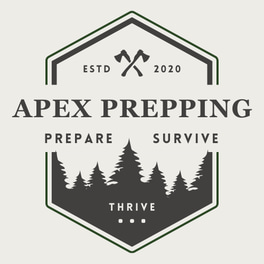20 Prepper Tips
Water is Vital: Store at least one gallon of water per person per day. Invest in water filtration systems for long-term sustainability.
Stockpile Non-Perishable Foods: Focus on canned goods, dried fruits, and grains. Don't forget basic cooking supplies like oil, salt, and spices.
First Aid Skills: Learn basic first aid and have a well-equipped first aid kit. Include prescription medications and hygiene supplies.
Self-Defense Training: Familiarize yourself with self-defense techniques and, if legal, consider owning firearms for protection.
Alternative Energy Sources: Invest in solar panels and portable generators. Have backup batteries for essential devices.
Communication Tools: Have a reliable communication plan, including walkie-talkies and emergency radios to stay informed during crises.
Bug-Out Bag: Prepare a bug-out bag with essential items like a flashlight, multitool, maps, and extra clothing. Customize for your family's needs.
Home Security: Reinforce doors and windows. Consider security cameras and motion sensor lights for early threat detection.
Gardening Skills: Learn basic gardening to grow your own food. Stockpile heirloom seeds for long-term sustainability.
Waterproofing and Storage: Use waterproof containers and bags to protect supplies. Vacuum-sealed bags can save space.
Fire-starting Skills: Master various methods of starting a fire, including primitive techniques like friction fire-starting.
Sanitation and Hygiene: Stockpile toiletries and sanitation supplies. Learn alternative methods for waste disposal and personal hygiene.
Wilderness Survival Skills: Learn skills like foraging, hunting, and basic navigation for situations where supplies run out.
Financial Preparedness: Have emergency funds in cash, gold, or other valuable commodities, as electronic transactions may fail.
Community Building: Form alliances with like-minded individuals. Strength in numbers can be crucial in survival situations.
Physical Fitness: Maintain good physical health. Regular exercise increases endurance and overall resilience.
Documentation: Keep important documents in a waterproof and portable container. This includes IDs, passports, and insurance papers.
Learn Basic Repair Skills: Acquire skills to repair essential items like clothing, tools, and shelter materials.
Knowledge Base: Invest in books covering a wide range of survival skills. Your knowledge can be your most valuable asset.
Mindset and Mental Health: Develop a resilient mindset. Practice stress-reduction techniques and be emotionally prepared for challenging situations.
